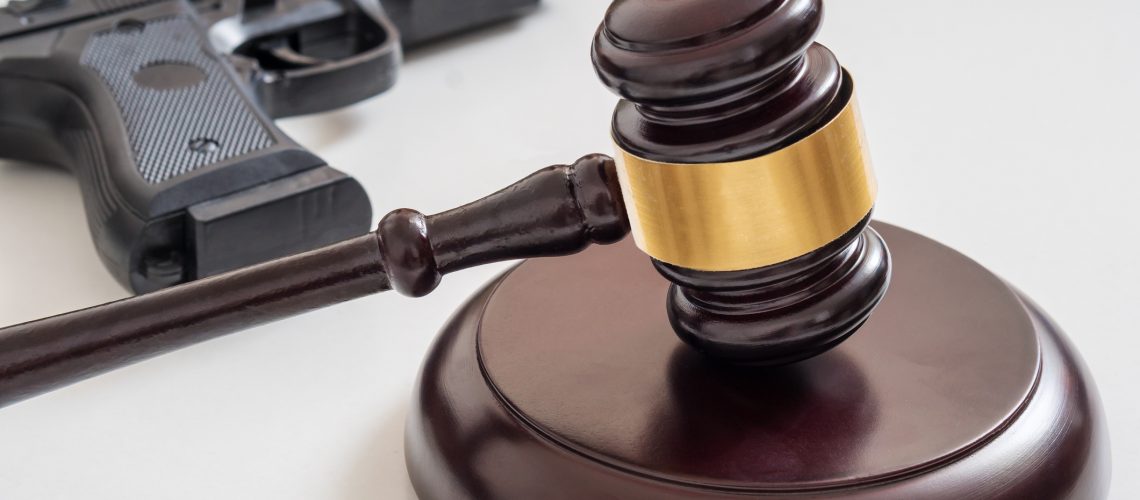When it comes to firearm possession in the military, the rules and regulations are often more complex than in civilian life. Military personnel are subject to the Uniform Code of Military Justice (UCMJ), which has its own set of laws and procedures. One such law, Article 134, plays a significant role in prosecuting firearm possession cases within the military. Understanding its implications can be critical for service members facing firearm-related charges.
What Is Article 134?
Article 134 is often referred to as the “General Article” because it covers a wide range of offenses not specifically addressed by other provisions in the UCMJ. It criminalizes conduct that is prejudicial to good order and discipline, or that brings discredit upon the armed forces. This broad scope allows Article 134 to be applied to numerous situations, including firearm possession.
Firearm Possession Under Article 134
Although the UCMJ contains specific firearm-related offenses under Articles 108 and 121, Article 134 is used to address cases that fall outside these narrowly defined crimes. For instance, firearm possession can be charged under Article 134 if it involves behavior that undermines military discipline, endangers others, or reflects poorly on the military’s reputation.
Some common scenarios where Article 134 might be invoked in firearm possession cases include:
- Unauthorized Possession: If a service member possesses a firearm on a military installation without proper authorization, it may be seen as a violation of Article 134.
- Carrying While Intoxicated: Military members found in possession of a firearm while intoxicated could face Article 134 charges due to the potential danger posed to others.
- Possession of Prohibited Firearms: Certain weapons, such as fully automatic firearms, may be prohibited by military regulations. Possession of these prohibited weapons can lead to charges under Article 134.
How Article 134 Is Applied to Firearm Cases
Article 134 allows military prosecutors significant flexibility. In a firearm possession case, the prosecution does not have to prove intent to cause harm, only that the service member’s actions were prejudicial to good order and discipline or brought discredit to the armed forces. This low burden of proof makes it easier to convict under Article 134 compared to other criminal statutes.
For a conviction, prosecutors must establish that:
- The Accused Committed an Act of Firearm Possession: The service member knowingly and unlawfully possessed a firearm.
- The Act Was Prejudicial or Discrediting: The possession in question negatively affected the military or damaged its reputation.
- No Legal Justification Exists: The service member must have lacked any legal authorization or excuse for possessing the firearm.
Potential Consequences of a Conviction
Convictions under Article 134 can have severe consequences, including:
- Punitive Discharges: Service members may face dishonorable or bad-conduct discharges, ending their military careers and resulting in a loss of benefits.
- Reduction in Rank: Military personnel may lose their rank and face decreased pay.
- Confinement: Depending on the severity of the offense, service members may be sentenced to military confinement.
Moreover, a conviction under Article 134 can impact a service member’s civilian life, affecting their ability to find employment, purchase firearms, or retain security clearances.
Defending Against Article 134 Firearm Charges
Service members facing charges under Article 134 should consult with an experienced military defense attorney. A skilled attorney can examine the circumstances of the case to identify possible defenses, such as:
- Lack of Knowledge: Demonstrating that the service member was unaware of the firearm’s presence.
- Lack of Unauthorized Possession: Arguing that the service member had the necessary authorization to possess the firearm.
- Violation of Rights: Challenging the legality of the investigation or the chain of custody for the firearm.
Article 134 provides military prosecutors with the flexibility to address firearm possession cases that fall outside traditional criminal categories. However, this broad application also makes it easier to charge and convict service members under its provisions. Service members facing firearm-related charges should seek immediate legal guidance to protect their rights and careers.
The Court-Martial Law Division of Aviso Law LLC Helps Military Members in Colorado
If you are a military service member and have been charged with unauthorized firearm possession, the Court-Martial Law Division of Aviso Law LLC can help. With the right legal support, you can work to mitigate the consequences and protect your future. We proudly defend our military members, who sacrifice so much for our country. To learn more or to schedule a free consultation, contact us today!

